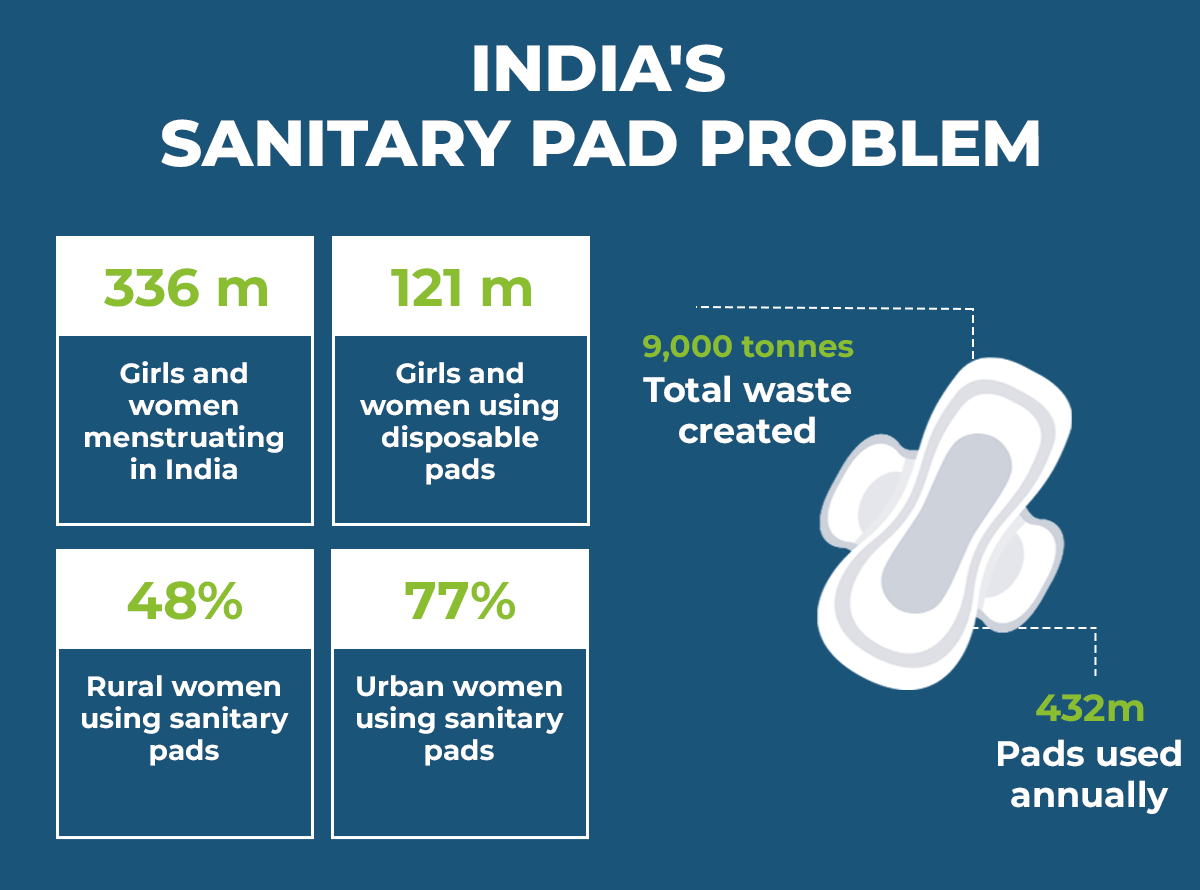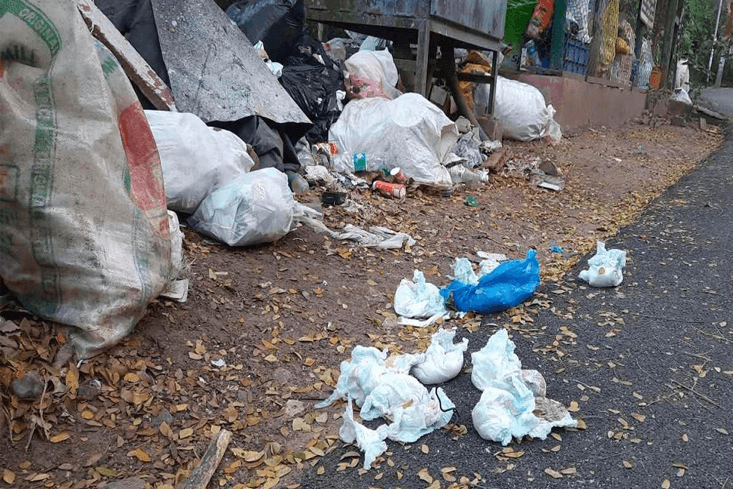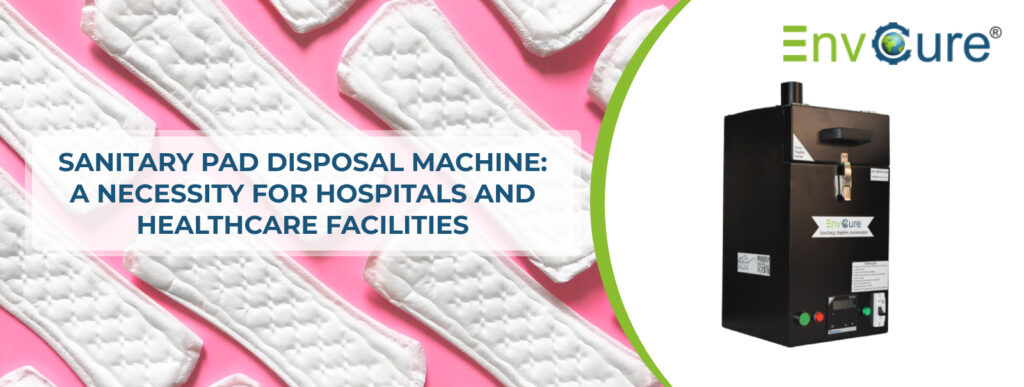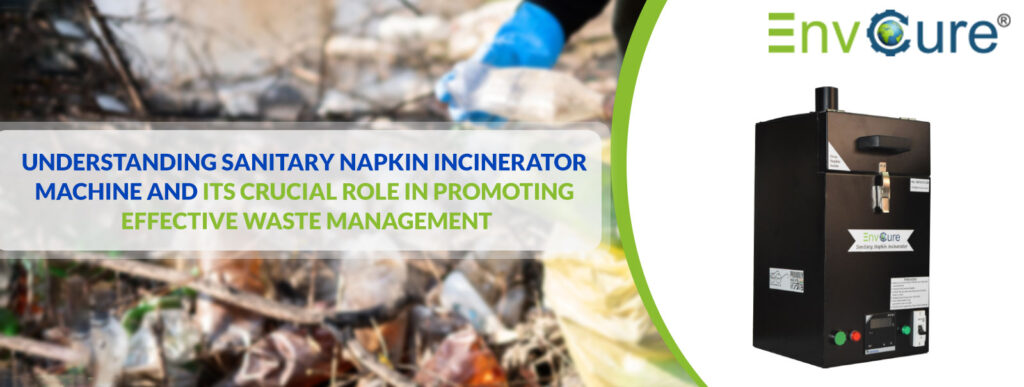In a country with one-sixth of the world’s population, problems are usually enormous when it comes to their magnitude.
However, over the last few years, there has been a significant rise in awareness around sanitary health for women.
Through its flagship initiative, “Swacch Bharat”, the government is undertaking every effort to ensure that the stigma around sanitary health is reduced and women, especially young girls, access essential healthcare products with the utmost ease.
Currently, it is estimated that nearly 36% of 336 million menstruating women in India use sanitary napkins and similar products.
While it is a positive trend that women are leveraging such products, helping us become a healthier nation, it has also given rise to a unique problem that citizens, along with governing authorities, must address together, quickly and efficiently.
In the section below, we explore the problems associated with sanitary napkin waste management and why is it imperative for us to come up with strategies to counter it.
The Waste Management Problem:
Currently, India nearly generates a waste of nearly 12.3 Billion Sanitary Napkins. Given such a huge number, it is only natural that to manage all of it is extremely difficult.

The government, taking cognizance of this massive problem has come up with a strategy.
Under the Solid Waste Management rules, 2016, “Bio-Medical Waste Management Rules 2016, items contaminated with blood and body fluids, including cotton, dressings, soiled plaster casts, lines and bedding, are bio-medical waste and should be incinerated, autoclaved or microwaved to destroy pathogens.”
The SWM Rules consider menstrual waste as solid waste and define it as sanitary waste within the same. Further, this framework also outlines the responsibilities of the waste generator, local authorities and gram panchayats and producers of sanitary products.
Currently, only two cities, Bengaluru and Pune, are following these guidelines and are disposing menstrual waste according to them.
For India to overcome the hazards of Sanitary waste management, which are explored in detail below, it is crucial that governing bodies, ministries, and entrepreneurs work together to develop solutions in line with the government policies and ensure safe disposal.
The Hazards and problems associated with Sanitary Waste Management:
- Sanitary napkins can neither be reused nor recycled.
- They cover hundreds of hectares of landfill sites.
- Owing to their non-biodegradable nature, they take a very long time to decompose completely, reducing usable land.
- Further, they also clog sewage pipelines and often need frequent manual cleaning of blocks.
- Because of the medical nature of waste caused by sanitary napkins, sanitation workers and waste pickers are unknowingly exposed to viruses and harmful micro-organisms such as e. coli, salmonella, HIV, pathogens etc.
The Way Forward:
- Ensuring Ground-Level Compliance:
- One of the key action points is to increase compliance among local municipal bodies and ensuring that the biomedical waste generated due to menstrual products is sent to one of the 215 large scale common bio-medical waste incinerators that exist across the country.
- Scaling up such common bio-medical waste incinerators across country with the help of private-public partnership. For instance, we, at EnvCure, have developed a state-of-the-art and innovative Sanitary Napkin Incinerator that is ideal for small scales. By adopting this machine at a community level, it can strengthen our collective fight against sanitary waste management. It offers customers with several benefits such as
- It offers low power consumption and has user-friendly functions.
- It is operated electrically and turns off the power automatically for reducing power consumption
- Built with a high-density heatproof ceramic fiberboard, the machine is insulated for excellent thermal protection
- Lastly, it is very compact in size, has an attractive outer body and can be easily mounted inside the toilet.
- The machine is capable of transforming a large amount of waste into ash very quickly and efficiently. You can read more about it here.
- Spreading Awareness
- True change can only arrive if we educate the masses regarding the perils of unorganized waste disposal of sanitary napkins and related products. Further, we must also equip them with the tools that make it simple for them to dispose of. Lastly, we must also strengthen community-wide efforts that make it safer for cleanliness workers to manage it safely such that it doesn’t violate any health concerns.
Way Forward
At EnvCure, we are passionate for finding out important solutions that can enable simpler and more efficient solutions for waste management across the country.
Just like our sanitary napkin incinerator, we have a collection of solutions that can help governments and local body authorities to make the whole process much healthier and safer. If you have any query, Please contact with us!








